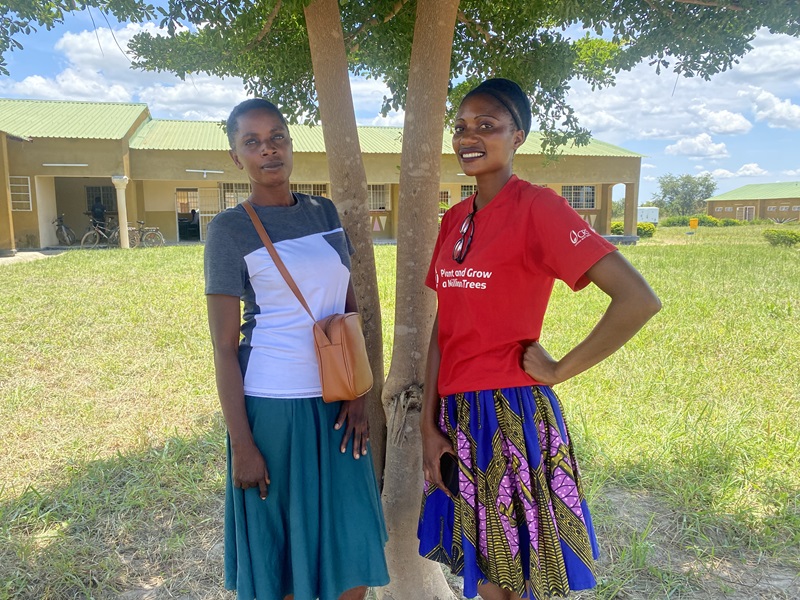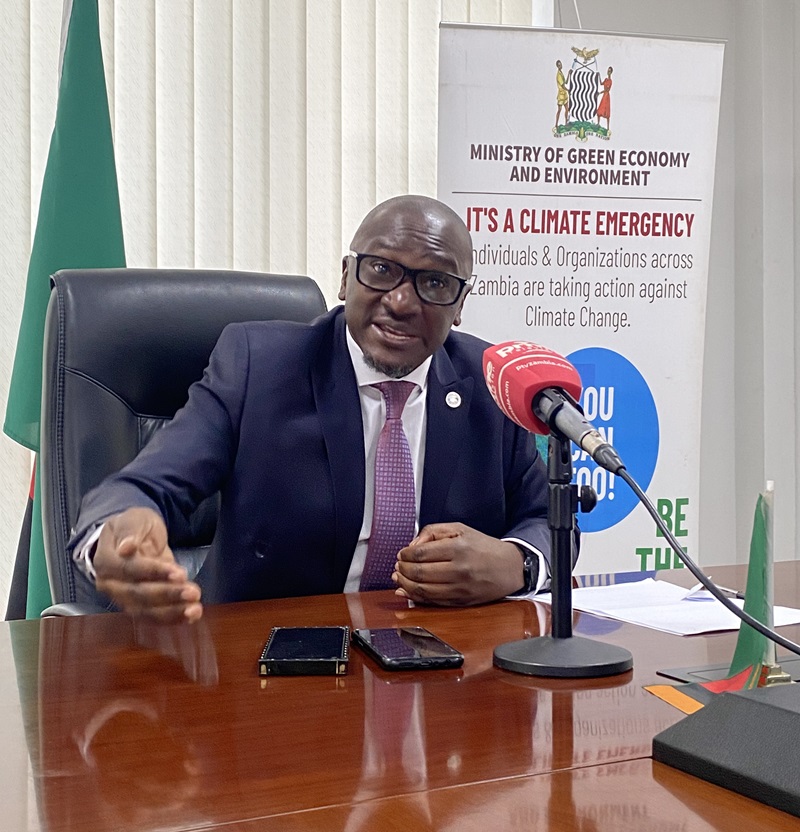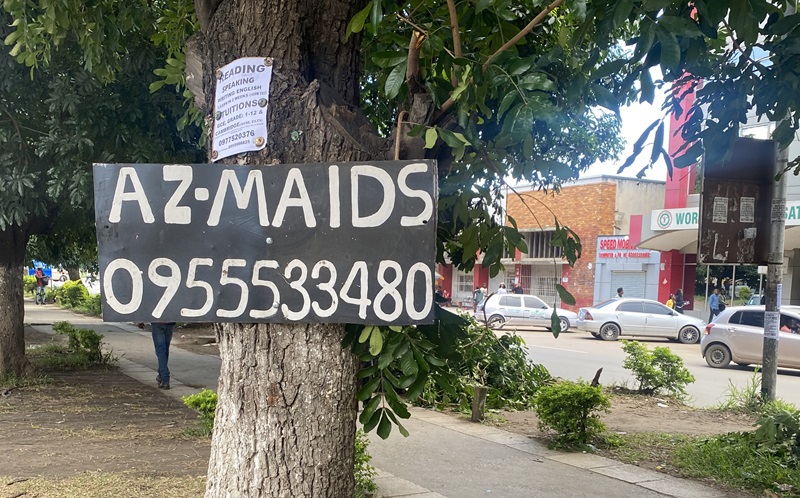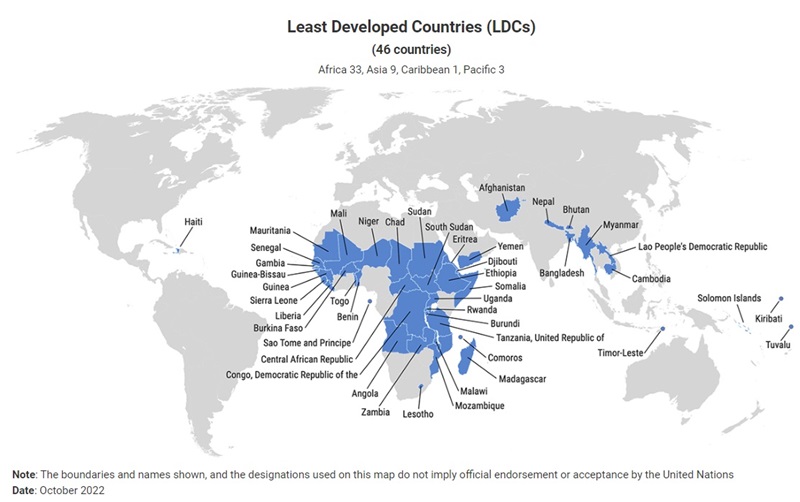Farmers need crop irrigation to help beat drought – but it’s unclear if that would qualify for new loss and damage funding
At international climate talks, developing countries are trying to draw a clear line between expected new funding to help them deal with the worsening “loss and damage” caused by climate change and existing finance for measures to adapt to more extreme weather and rising seas. But in drought-hit Zambia, that distinction is proving hard to make.
Climate-vulnerable nations want wealthy governments to provide additional money to repair and reduce loss and damage via a new fund set up at the Cop28 UN climate summit late last year, but fear that money could be diverted from budgets already earmarked for adaptation.
The lack of a globally agreed definition of what constitutes loss and damage will likely make hard to know whether that is happening – and there is already considerable confusion on the ground.
In a week-long trip around Zambia, Climate Home spoke about the issue with maize farmers in their dried-up fields, besuited bankers in air-conditioned offices, and the minister for green economy and environment around a polished boardroom table.
Asked what they wanted from the UN loss and damage fund, all mentioned one thing first: support for water supplies in the form of irrigation or rainwater collection, to lessen farmers’ reliance on increasingly scarce rainfall.
At the end of February, the president declared the severe drought affecting much of the country as a national emergency, blaming the El Niño weather phenomenon and climate change. He noted that the drought had destroyed nearly half the maize crop and was expected to continue.
Farmer Benson Chipungu’s healthy irrigated corn (foreground) and his dying rain-fed corn (background) on March 7, 2024 (Photo: Joe Lo)
Reliance on rain
“The drought has hit us very bad,” said farmer Benson Chipungu at his house in Chongwe, a meagre batch of corn drying behind him during a rare and brief bout of rain. “The fields are a sorry sight.”
He said he had not followed developments at Cop28 closely, but added “if I was able to access [the loss and damage fund] then irrigation systems is the major thing”.
Clara Shangabile and Gertrude Nangombe, also maize farmers and members of the Katoba youth climate champions group, tuned into Cop28 on a TV at their local secondary school.
Like many corn producers Climate Home spoke to, they want help to move into what they call “gardening”, which means growing high-value crops that don’t need much land, like tomatoes, kale, green beans and peppers. While vegetables require more water per square metre, they use less overall because a smaller sized plot yields the same amount of money as growing corn.

Gertrude Nangombe (left) and Clara Shangabile (right) stand outside Katoba secondary school on March 6, 2024 (Photo: Joe Lo)
Zambia’s green economy and environment minister, Collins Nzovu, who chaired the African Group of nations at Cop28, said the new loss and damage fund – whose arrangements are still being put in place and is unlikely to start disbursing money until 2025 – should contribute to expanding water harvesting and dams. “Food security won’t be guaranteed until we can grow our own crops,” he said.
Asked if these activities fall under adaptation or loss and damage, he told Climate Home: “they are one”. “We are being forced to adapt because of the change in climate,” he said. “I shouldn’t be building any dams if the weather pattern was the same as it was 50 years ago. But now we need that – it’s loss and damage.”

Green economy and environment minister Collins Nzovu, pictured in Lusaka on March 7, 2024 (Photo: Joe Lo)
Blurred boundaries
Climate Home asked watchers of loss and damage talks in the UN climate process – including government negotiators and campaigners – whether irrigation should be classified as adaptation or loss and damage. Their answers were varied and nuanced.
Veteran campaigner Harjeet Singh said large-scale infrastructure projects like dams are adaptation, but community-based irrigation can be a response to loss and damage. He said it was tough to distinguish clearly between the two at the local level “due to frequent overlaps”.
Adao Soares Barbosa, who is a board member for the UN loss and damage fund and a finance negotiator for the Least Developed Countries group to which Zambia belongs, said rainwater harvesting and irrigation are generally viewed as adaptation, but if they are put in place to deal with loss of water induced by climate change, then they fall under loss and damage.
Zoha Shawoo, from the Stockholm Environment Institute, said it is “not very useful to draw strict boundaries” as the two types of activity are “super-blurred on the ground”. Ideally, she said, medium-term loss and damage funding for things like relocation of communities or financial compensation for lost crops would build on emergency humanitarian aid such as food parcels.

A sign in Lusaka’s central business district advertises maids on March 10, 2024 (Photo: Joe Lo)
Support to help families struggling with drought migrate to other places would be useful in Katoba. Shangabile and Nangombe said many of their friends had moved to Lusaka to work as maids. Both are open to the idea of following them, but Nangombe worries about not being her own boss.
“If you break a cup or something, you’re fired,” she said through a translator, adding “the best is to identify something you can do as a person within the same community” – such as diversifying into vegetable production.
Mattias Soderberg, from humanitarian agency DanChurchAid, said helping these women settle into their new lives is the kind of thing the new loss and damage fund should be used for. His organisation, for example, has enabled Kenyan herders displaced by drought to learn to fish.
Board to decide
Zambians are also wondering who will be able to access the fund. In Katoba, Catholic Relief Services project officer Harrison Zimba said the community is setting up a cooperative to access grants and loans as a group, and hopes they will be able to get money from the loss and damage fund.
In Lusaka’s central business district, Cheyo Mwenechanya, head of agriculture at commercial bank Zanaco, told Climate Home his organisation also plans to tap the fund, probably working with government. He would like to channel the money into irrigation.
One certainty is that Zambia, as a member of the UN’s Least Developed Countries (LDC) group, will be eligible.
Wealthy governments have tried to restrict loss and damage funding to countries judged to be “particularly vulnerable to the adverse effects of climate change”, as stated in the decision on operationalising the new fund approved at Cop28.
It is unclear how that will be defined in practice – but if recipients are limited to LDCs and small island developing states, then Zambia’s southern neighbours Zimbabwe and South Africa, which are suffering from the same drought, would not qualify.

A map of the world’s least developed countries, as defined by the UN. It does not include SIDs. (Photo credit: Unctad)
All these matters will be decided by the fund’s board. After a three-month delay caused mainly by rich nations squabbling over which of them should get seats, the board is now expected to hold its first meeting by the end of April – around the same time Zambia will be counting its paltry harvest.
The fund will need not just to agree on its rules, but also find new money – and sources of funding are likely to be scarce. The cost of loss and damage for developing countries is projected to reach $290 billion–$580 billion in 2030, according to a 2018 estimate. But wealthy governments pledged only around $0.7 billion at Cop28 in a first round of pledges, with the US offering no more than $17.5 million.
In Zambia, Minister Nzovu described those pledges as “exciting” but said “we need billions, trillions if we are going to develop our economies”. “Those who pollute more – the developed world, the Americans, must get out their cheques and pay for these losses and damages.”
Travel for this story was funded by Catholic Relief Services.
